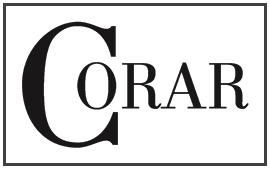The Council on Radionuclides and Radiopharmaceuticals (CORAR) provides the following
comments and recommendations to the Department of Energy in support of the implementation
of the American Medical Isotopes Production Act of 2012 (AMIPA).
CORAR members are committed to working with all U.S. and international stakeholders to
ensure a reliable, sufficient and sustainable supply of medical radioisotopes from non-HEU
production sources, in particular due to nonproliferation and nuclear security risks arising from
potential theft or diversion of highly enriched uranium (HEU) targets to unauthorized uses. At
the same time, CORAR believes that efforts to promote the use of non-HEU produced
molybdenum-99 (Mo-99) must be closely monitored to ensure that U.S. patients are not
adversely impacted either by (1) supply shortages due to inadequate or unreliable supply sources,
or (2) insufficient reimbursement for higher cost non-HEU Mo-99 including low enriched
uranium (LEU).
(Read more)
CORAR
recently submitted comments to CMS on the 2014 proposed rule for the Medicare Hospital
Patient Prospective Payment System (OPPS). The CORAR comments focused on a number of
provisions of particular importance to the radiopharmaceutical/nuclear medicine
industry, including the following:
- CORAR
continues to believe that CMS should unpackage diagnostic radiopharmaceutical
drugs from the nuclear medicine procedure if they meet the applicable cost
threshold for other “specified covered outpatient drugs” that are paid
separately.
- To
the extent that CMS' packaging policy is applied, CORAR believes that the costs
of packaged diagnostic radiopharmaceuticals must be fully reflected in the
associated hospital ambulatory payment classification (APC) procedure
payments. Therefore, CORAR suggests that
CMS continue to apply radiopharmaceutical edits for nuclear medicine procedures.
- CORAR
requests that CMS present detailed information on how it attempts to capture
the full cost of radiopharmaceuticals in associated APC procedural
payments. Likewise, CORAR recommends
that CMS reconfigure the nuclear medicine APCs to better account for the range
of packaged radiopharmaceutical costs, or develop a separate outlier or add-on
policy for high-cost packaged diagnostic radiopharmaceuticals.
- CORAR
has concerns about CMS’s proposal to package seven new categories of supporting
items and services into the APC payment, since it could result in items and
services that are economically and clinically dissimilar being included in the
same APC in violation of the Social Security Act. Likewise, CORAR requests clarification on CMS’s
regulatory authority to classify drugs, biologicals, and radiopharmaceuticals
as “supplies.”
- CORAR
supports the Administration’s efforts to ensure a reliable, sufficient and sustainable supply of medical
radioisotopes from non-highly enriched uranium (HEU) production sources. We agree with CMS that OPPS payment
policy should recognize full cost recovery of the additional costs, which are
not accounted for in historical claims data, and which are not likely to be
passed on to hospitals uniformly as the industry converts. However, CORAR believes that CMS must take
additional measures to more effectively gather the cost data necessary to fully
recognize the cost disparities between HEU and non-HEU sources.
- CORAR
supports radiopharmaceutical eligibility for pass-through status and suggests
that CMS consider a higher pass-through payment amount for radiopharmaceuticals. CORAR strongly recommends that CMS make radiopharmaceutical
pass-through payments available for the full three-year period authorized by
law. To that end, CORAR objects to CMS’s
proposal to expire the pass-through status of Ioflupane I123 Injection (C9506/A9584)
after only 2.5 years.
- CORAR
opposes CMS’s proposed $10 increase in the threshold for separate payment for
outpatient drugs. CORAR instead
recommends that CMS limit increases in the threshold amount to the hospital
update for the year (reflective of all statutory adjustments).
- CORAR
supports CMS continuing its policy to reimburse separately-payable,
non-pass-through OPPS drugs, including therapeutic radiopharmaceuticals, at the
“statutory default” rate of average sales price (ASP) plus 6%. CORAR suggests that CMS evaluate ways to
compensate hospitals for higher overhead and handling costs associated with radiopharmaceuticals.
- CORAR
recommends that CMS continue the current requirement that hospitals report the
“FB” modifier for nuclear medicine scans in which a no cost/full credit
diagnostic radiopharmaceutical is used to promote accurate cost reporting.
- CORAR
expresses cautious support for CMS’s proposal to use data from new cost centers
for CT, MRI and Cardiac Catheterization to calculate cost-to-charge ratios
(CCR) that will be used to set 2014 rates because it appears to more accurately
account for hospital costs associated with nuclear medicine procedures. However, we share the concerns of other
stakeholders about the potential impact of the change on other imaging
procedures.
